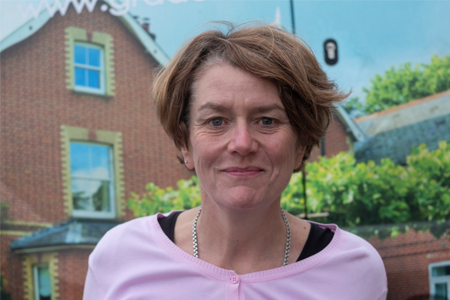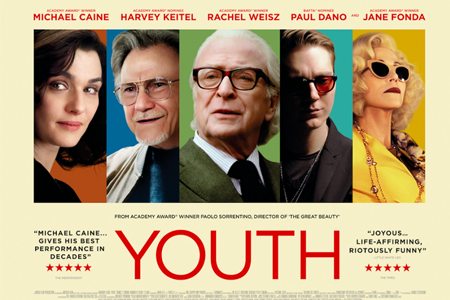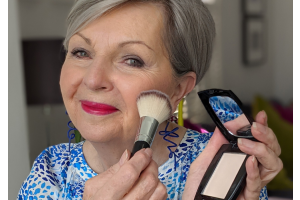
A couple of weeks ago I wrote about The Villages, a huge, purpose built retirement community in Florida. I called this ‘Not My Kind of Heaven’ because I’d been watching a documentary about The Villages called ‘Some Kind of Heaven’ and decided that this sort of setup was definitely not my cup of tea.
I particularly objected to the Disneyesque town squares and shops faked to appeal to a nostalgic sense that everything was better during our 1950s childhoods. However the two biggest issues for me from the documentary were the ghettoisation of old age in this way and the fact that children are positively discouraged in The Villages, with visits from grandchildren limited to a strict 30 days a year.
By ‘ghettoisation’ I mean the lumping together of people in one place as a group separated from the rest of society based entirely on their age.
The most depressing aspect of The Villages to me was the fact that everywhere you go, you only see, meet and talk with people the same age as you. On one level it may be immensely reassuring that you’re not the only one with creaky joints and stiff knees and to have your own beliefs and prejudices confirmed and parroted back to you, but I can honestly think of nothing worse than rarely seeing a fresh young face or of hearing some fresh young points of view. My musings have pushed me to do some research and I have found three interesting alternatives to the kind of living offered in most of the dedicated retirement communities both here and in the USA. One offers a bridge between fully independent living and the point at which you may need full time care, one is a new and innovative way of offering a different experience of full time residential care and one is an experiment in a simple initiative which might transform the lives of those residents who lack the stimulus, company and sheer fun of being around young children.
1. An Interim Solution: Share and Care Homeshare.
I think this is a particularly brilliant idea, especially for cities like London which have an acute shortage of affordable accommodation. Older homeowners, who are often women living alone in their former family home, offer a rent-free spare bedroom in exchange for 15 hours a week of practical help, support and companionship. This service brings together two people with different sets of needs, both of whom have something to offer to each other. It was set up in 2006, but only came onto my radar last week when a person running Homeshare in Wandsworth shared a platform with me for a zoom meeting. Caroline stressed that the sharer was not a carer, but rather someone who could offer practical help and support and of course, some much needed companionship.
I realise that she wanted to paint a really positive picture but her various examples of successful home shares were very heartwarming. Iris, a retired teacher, has been matched since early 2020 with Joanna, a songwriter. When Joanna stops work the two of them prepare a meal together and chat about their day over dinner. Iris was quoted as saying that sharing her home with Joanna had helped her to feel more secure, happy and increase her enjoyment of life. Whilst Suzanna, a tutor who has been a sharer since 2018 was quoted as saying that “living like this has been a wonderfully rewarding experience. I feel grateful for the journey every step of the way which has enriched my circle of friends.”
Find out more about Share & Care here: https://www.shareandcare.co.uk/
2. Humanitas in Holland: A Different Kind of Retirement Home
I absolutely love this initiative and salute the visionary and determined female manager at the Humanitas retirement home in Holland for making it happen! Her idea was to offer free accommodation in the home of 160 residents to 6 students at the local university free of charge. This was put to the residents and many objected on the grounds of potential noise, alcohol and drug consumption on the premises and visits from girl or boyfriends (sex, drugs and rock n’ roll?!). However a pilot of one student for one month was successfully tried and the scheme was adopted. It’s clear from an independent research paper I read that this has been hugely successful for everyone involved; residents, staff and students have all benefited greatly.
In return for their lodgings, the students must offer time to the old folk which translates into help with phones, tablets, zoom and the internet in general. But it extends beyond this to shared meals in restaurants and visits to the cinema and shops. Real friendships have formed and I loved the comment that the residents no longer chat about upcoming doctors’ appointments but gossip about the love lives of their fellow young residents! Another initiative has allowed a train set to be built for autistic children in the basement and a young local photographer uses digital screens to display his work. There’s also a billiards club and the gardens are open to all, residents and non-residents alike. In this way Humanitas has become a central and important hub for the whole community with a focus on celebrating autonomy, happiness and living life to the full.
Larkhill in Nottinghamshire: ‘Old People’s Home for 4 Year Olds’
In 2018 ten residents of Lark Hill, the UK’s largest retirement community participated in an experiment with 10 four year old children which was filmed for Channel 4 in a series of programmes called ‘Old People’s Home for 4 Year Olds’. It asked the simple question: ‘Would daily contact during a 3 month period have benefits for the mental and physical well-being of both the older adults and the children?’ Before it began the residents who ranged in age from 81 to 102, were tested for mood, memory and mobility. Most scored very poorly in the cognitive tests, some were lonely and depressed and seven of them were at high risk of falling due to poor balance and all of them had very poor grip strength which is an indicator of overall health. Three, including 102 year old Sylvia, were classed as ‘frail.’ The children were also studied and assessed by observers and parents to see what would happen to their overall development.
I’m sure that it will come as no surprise to you that 3 months of interaction between the two very contrasting age groups, which included fun and games and a great deal of mutual kindness and support, resulted in huge mutual benefits. Two of the most poignant comments were from 81 year old former dancer Lillian who said “Mason makes me feel treasured - I don’t get that from anyone else anymore” and Pauline, an immaculately dressed, made-up and coiffed 91 year old former magistrate added “I look forward to every day with the children and wonder “what’s going to happen today?” At the end of the experiment all the adults had made improvements on every score, including mobility and strength and the children had gained resilience, independence, empathy, nurturing and language skills. Important lessons were learnt by the experts, one of whom commented: “Making life easier for the elderly may not be the right thing to do. We now realise how important it is to challenge them both intellectually and physically.”
You may be interested to know that, thanks to a customer who read my blog ‘Not My Kind of Heaven’, I have been invited to speak at a (virtual) conference on June 24th to a group of 150 or so developers, operators and agents of retirement communities in the UK. I intend to tell them why I object so strongly to the ‘ghettoisation’ of elderly people in large purpose built care homes or retirement communities like Lark Hill in which they become guests or clients in a controlled and predictable environment. I intend to tell them how important it is to see older people as no different from any other human beings.
The visionary manager of Humanitas understood that by opening up the care home to student lodgers, special needs children and the wider community, the environment would shift from predictable and controlled to surprising and enabling. Residents are no longer guests, clients or passive recipients of care. Instead they have agency and now play host to people of all ages including staff, students and children whom they have invited into their home because they’ve realised that mixing with people across the generations is the best way to live full, rich and satisfying lives.
The photo above shows me with my (much younger) colleagues at LFF, Emily, 24 (left), and Bryony, 29 (right), who help me put my blog together every week.
Tricia x
Upcoming Event Information:

Tricia Talk - Dymphna Flynn, A Career in Books
Dymphna Flynn: ‘My Life as a producer on Radio 4’s Book Club’. Dymphna has also just been announced as a judge of this year’s Costa Book Award.
Day: Tuesday 15th June
Time: 4pm
Link: https://us02web.zoom.us/j/89352265566?pwd=RE5PQ0p6Qko5R0liU2t5cHVvYmJaUT09
Meeting ID (if needed): 893 5226 5566
Password (if needed): LOOKFAB

Film Club - Youth
Available on Curzon Home Cinema or Amazon Prime
Day: Friday 18th June
Time: 4pm
Link: https://us02web.zoom.us/j/88921017357?pwd=WnhLcG5BaG1lWDJCaDFNVXVLanBPZz09
Meeting ID (if needed): 889 2101 7357
Password (if needed): LOOKFAB
You can also keep an eye on the weekly schedule of Events which will be updated every Friday at 5pm (GMT) here: https://www.lookfabulousforever.com/a-bright-spot-for-your-day












